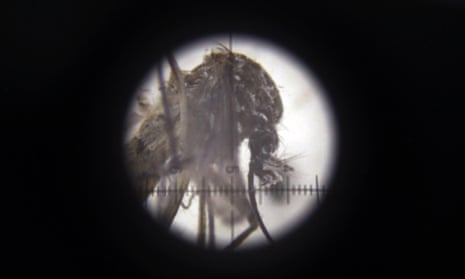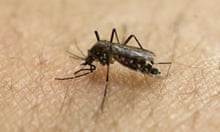US health officials are strongly urging doctors to ask all pregnant women about a possible Zika infection at every check-up. The Centers for Disease Control and Prevention (CDC) has also warned that the virus can be transmitted through unprotected sex with an infected female partner.
Previously, the CDC and other experts believed the virus could only be sexually transmitted by males because it can reside in semen potentially for several months.
The Zika virus is mainly spread by mosquito bites, but can also be transmitted through sex. Infection during pregnancy can result in birth defects. So far, there have been no confirmed cases of a Zika infection from a mosquito bite in the US, although officials expect mosquitoes will start spreading it in southern states. All US illnesses have been connected to travel to areas with Zika outbreaks.
The advice came on Monday as the CDC fine-tuned its guidance. It urged doctors to at least ask pregnant women if they or their sex partner had been in an outbreak area, and suggested expanded use of a sophisticated blood test. The CDC previously recommended that men who had been infected abstain from unprotected sexual contact for at least six months with a partner who was pregnant or hoping to become pregnant.
But a recently reported case of female-to-male sexual transmission in New York City, and limited human and non-human primate data indicating that Zika virus RNA can be detected in vaginal secretions, led to the new warning about unprotected sex with an infected female partner, the agency said.
The CDC’s expanded warnings on sexual exposure to Zika now caution against sex without a condom or other barrier method of protection with any person, male or female, who has travelled to or lives in an area with Zika; the warnings include concerns over female-to-female transmission with a pregnant partner.
The CDC also expanded the window for Zika-specific blood testing from a week after the onset of symptoms, or believed exposure, to 14 days.
“New information has indicated that some infected pregnant women can have evidence of Zika virus in their blood for longer than the previously recommended seven-day window for testing after symptoms begin, and that even pregnant women without symptoms can have evidence of the virus in their blood and urine,” the agency said.
The CDC also advises that pregnant women, with possible Zika exposure but no symptoms, receive testing too.
“Expanding the use of the Zika-specific test could provide more women with Zika virus infection a definite diagnosis and help direct medical evaluation and care,” the CDC said.
Zika has been proven to cause microcephaly, a birth defect marked by small head size that can lead to serious developmental problems, and has been linked to other severe fetal brain abnormalities.
The connection between Zika and microcephaly came to light last fall in Brazil, which has now confirmed more than 1,600 cases of microcephaly that it considers related to Zika infections in the mothers.
Last week, New York health officials announced the first birth of a baby with microcephaly in the city.
On Monday, health officials in Barcelona said a woman had given birth to a baby boy with microcephaly associated with the Zika virus – the first detected case in Europe. The health ministry said Spain had recorded 190 Zika infections, with all but one contracted abroad. One case of sexual transmission was found in Madrid.









